Losing loved ones is always a tragedy, and different
cultures have unique ways of coping with grief.
On the island of Sulawesi in
Indonesia, several ethnic groups, such as the Toraja, adhere to a tradition
that may shock outsiders but helps locals cope with loss and maintain a
connection with their departed loved ones.
In this tradition, the bodies of the deceased are kept unburied for several months or even years. Only after this period do they receive a final send-off. Furthermore, in a remarkable display of reverence, the bodies are regularly retrieved so that the living can reunite with their departed family members and friends
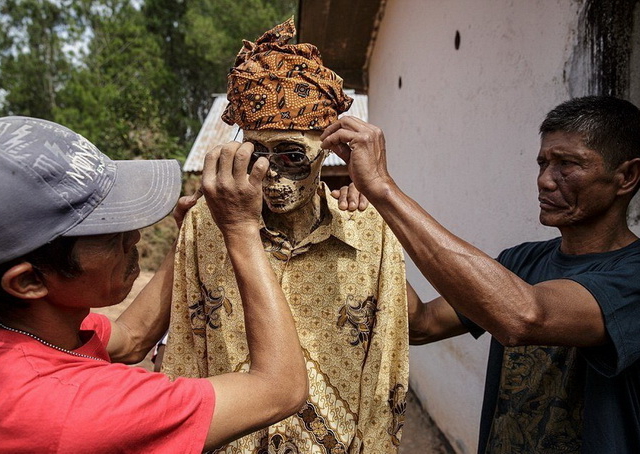
It is believed that there is no immediate need to bury a
person after death. Instead, the deceased can remain in the home where they
lived for as long as their relatives deem necessary.
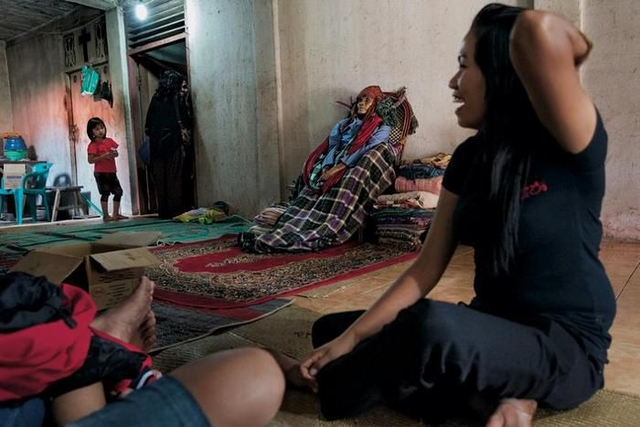
During this time, they are
regarded as merely sleeping or unwell, with the belief that they can still hear
and feel everything. Consequently, they are treated as if they were still
alive.
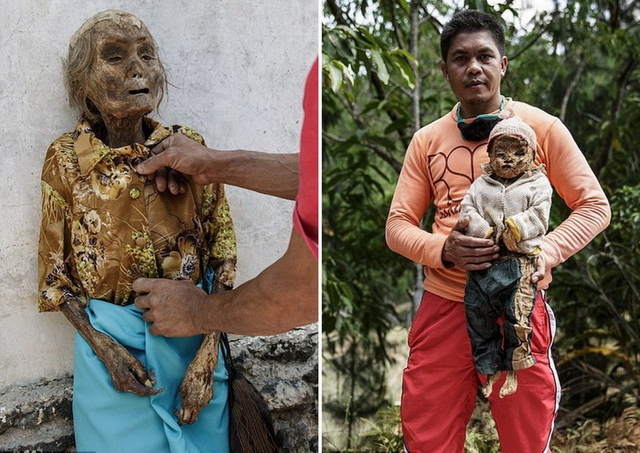
The departed receive constant attention, are never left alone, and the light in their room is kept on. Their bodies are meticulously cared for: clothes are changed, they are washed, and even food, water, and cigarettes are served to them.
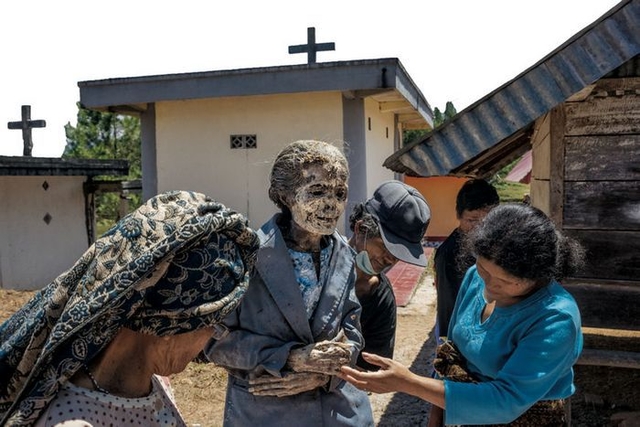
Perhaps due to environmental conditions such as low humidity and high temperatures, over time the bodies naturally mummify.
When the family decides it's time to lay the body to rest,
they commence the funeral rituals. These rituals are filled with songs, dances,
and the sacrificial offering of buffaloes. According to the traditions of the
Sulawesi people, buffaloes are believed to assist the soul of the deceased in
crossing over to the afterlife. As a result, many animals are slaughtered,
cooked over a fire, and shared with all who come to bid the deceased a final
farewell.
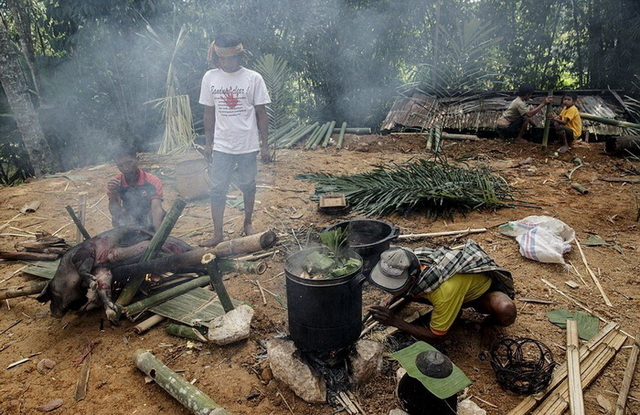
The burial itself is also unique: the bodies are placed in
special tombs—natural caves abundant in the mountains.
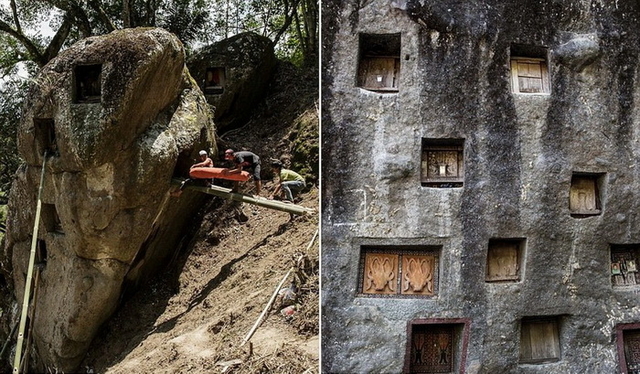
Near the tombs, the family places hand-carved wooden dolls.
These dolls, known as "tau-tau", are replicas of the deceased, often
adorned in clothing styles that the deceased preferred when alive, and
sometimes even wearing wigs made from their hair. Similar to photographs on
gravestones in other cultures, tau-tau serve as a way to remember the deceased.
Despite their high cost—around $1,000 USD—the locals spare no expense.
Additionally, funerals themselves are also very costly, often being the most
expensive event in a Sulawesi resident's life.
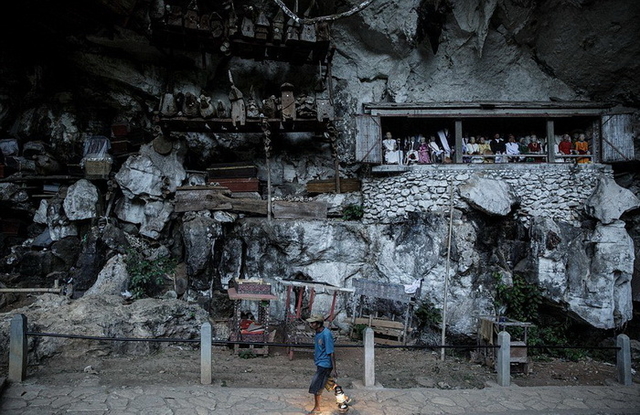
However, even this farewell is temporary; relatives continue
to retrieve the bodies of their loved ones after the funeral to remember and
spend time with them.
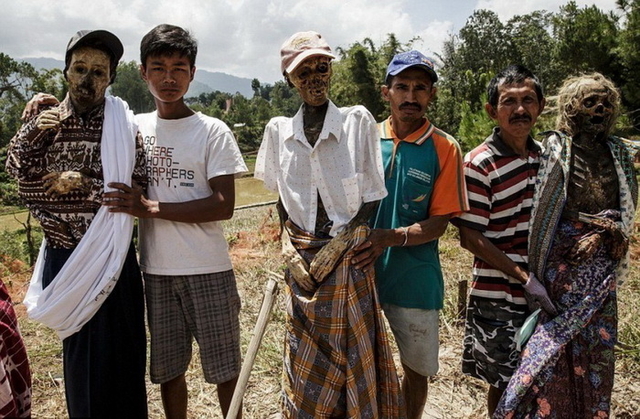
This custom, known as "manene" and translated
as "cleansing of the dead," involves the family visiting their
deceased every two to three years. During these visits, the bodies are taken
out of the tombs, offered food and cigarettes, washed, and family pictures are
taken before placing them back in their original resting place. Both adults and
children participate in this tradition, viewing their deceased relatives as
eternally sleeping and not at all frightening.
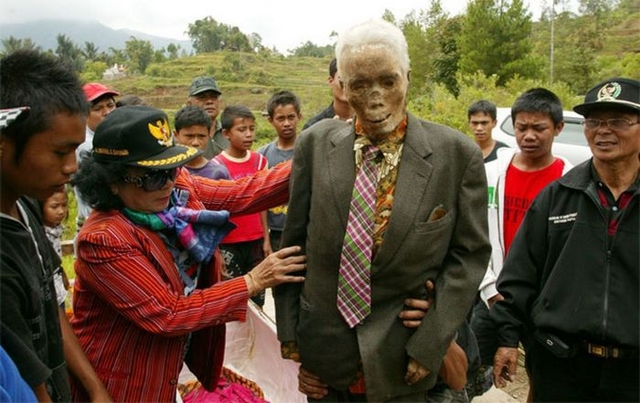
While these traditions may seem unconventional to the rest
of the world, the underlying principles are not so different from cultures
where it is customary, for example, to remember their deceased relatives by
visiting their graves.
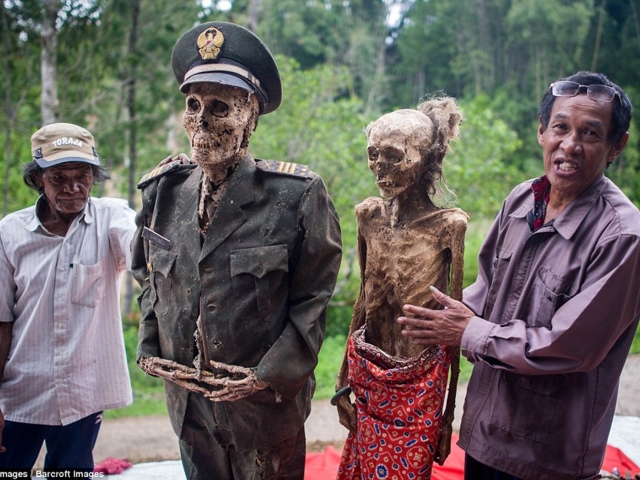
Source: BaliForum
You can add one right now!